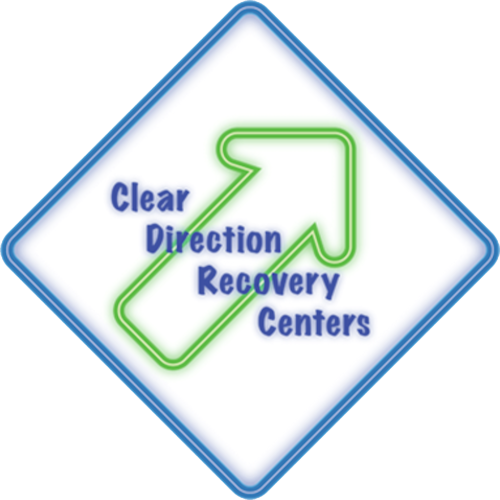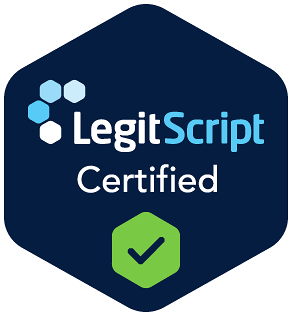Intensive Outpatient Treatment (IOP) in New Jersey
Finding the right level of care can make all the difference in recovery. An intensive outpatient program (IOP) in NJ offers structured treatment and support while allowing individuals to maintain work, school, and family responsibilities. Designed for people who don’t require 24/7 supervision but still need consistent guidance, our IOP in NJ bridges the gap between inpatient rehab and traditional outpatient therapy.a
With flexible scheduling, evidence-based therapies, and access to local resources, our addiction treatment programs in New Jersey provide a balanced path toward long-term healing and stability for New Jersey residents.

What is an Intensive Outpatient Program (IOP)?
An intensive outpatient program (IOP) is a structured treatment option for individuals working to overcome substance use disorders, mental health conditions, or co-occurring disorders. Unlike inpatient or residential care, an IOP does not require clients to live at the facility. Instead, participants attend scheduled therapy sessions several days a week while continuing to manage their personal, professional, and family responsibilities.
An IOP in NJ typically involves a combination of individual counseling, group therapy, family therapy, and skill-building sessions designed to strengthen coping mechanisms and prevent relapse within a therapeutic environment. Programs usually meet for a set number of hours per week—often in the evenings or flexible daytime slots—to accommodate work and school schedules.
This level of care is ideal for patients who need more support than our outpatient program in NJ can provide but do not require the round-the-clock supervision of inpatient treatment, and can benefit from individualized treatment plans. By offering both structure and flexibility, intensive outpatient treatment enables New Jersey residents to make progress in their recovery while maintaining connections to their daily lives.
What To Expect in An IOP
When enrolling in an intensive outpatient program in NJ, you can expect a structured schedule that includes a weekly individual session designed to support long-term recovery while accommodating your daily responsibilities. A typical IOP NJ treatment plan includes individual therapy, group therapy, medication management, psychoeducation, evidence-based behavioral therapies, and holistic approaches. Together, our therapy for addiction in New Jersey provides a balanced foundation for emotional healing, relapse prevention, and personal growth.
One-on-one sessions with addiction counselors allow individuals to explore the underlying causes of addiction and mental health struggles. In IOP, therapists help clients develop healthy coping skills, address triggers, and work through personal challenges in a safe, supportive environment.
Group sessions foster peer support and accountability, while also addressing important aspects of behavioral health. Participants share experiences, practice communication skills, and build resilience through guided discussions and activities. Group therapy often focuses on stress management, financial responsibility, refusal skills, and other real-world strategies that strengthen recovery.
For those with substance use disorders or co-occurring mental health conditions, medication may be part of treatment, and medication monitoring will ensure safety and effectiveness. Medication-assisted treatment (MAT) is closely monitored, with regular evaluations to ensure safety, effectiveness, and progress toward recovery goals.
Education plays a vital role in recovery, especially for those dealing with depression and other mental health challenges. Psychoeducation sessions provide information about addiction, mental health, and effective coping strategies. Families are often included, learning how to support their loved ones, encourage relapse prevention, and promote healthy lifestyle changes.
Evidence-based therapies—such as cognitive-behavioral therapy (CBT), dialectical behavior therapy (DBT), and motivational interviewing (MI)—address thought patterns and behaviors linked to addiction and anxiety. CBT helps reshape negative thinking, DBT builds emotional regulation skills, and MI strengthens motivation for lasting change.
IOP programs often include holistic practices that focus on healing the mind, body, and spirit. Activities such as yoga, meditation, and mindfulness encourage relaxation, self-awareness, and stress relief—powerful tools for preventing relapse and supporting overall well-being.
Contact Clear Direction Today!
Why Wait? Find The Help You Need By Reaching Out To Us Today! Our Admissions Team Is Standing By.
How Long Does IOP Treatment Last?
The length of an intensive outpatient program (IOP) in NJ can vary depending on each individual’s needs, progress, and treatment goals. On average, most IOPs last 8 to 12 weeks, though some may be shorter or extend longer for those requiring additional support. Sessions typically run 3 to 5 days per week, with each meeting lasting about 3 hours.
Because recovery is not one-size-fits-all, treatment teams regularly assess progress and adjust the length of care to ensure clients receive the right level of support. For some, completing an IOP is a step-down from a higher level of care, such as residential or partial hospitalization, and they may also benefit from joining an alumni group for ongoing support.Our substance abuse treatment in New Jersey offers flexible scheduling—such as evening or daytime sessions—so individuals can continue to manage work, school, or family responsibilities while participating in structured therapy. This balance of consistency and flexibility makes IOP a practical option for long-term recovery and rebuilding a fulfilling life.
What are the Benefits of IOP?
Choosing an intensive outpatient program (IOP) in NJ provides a range of benefits for individuals seeking treatment for substance use disorders, co-occurring conditions, or mental health challenges, as they work collaboratively with their treatment team. This level of care combines structure with flexibility, providing support that seamlessly integrates into everyday life.
An IOP NJ allows clients to live at home and maintain work, school, and family responsibilities while still receiving intensive outpatient services. This makes treatment more accessible without disrupting daily routines.
Through structured sessions, participants develop healthy habits, establish routines, and acquire essential life skills such as stress management, communication, and problem-solving—tools that support long-term recovery, particularly for individuals with anxiety disorders.
Compared to standard outpatient therapy, IOPs provide more frequent sessions and a higher level of clinical oversight for both mental health and substance use issues. This often includes individual counseling, group therapy, and evidence-based approaches tailored to each person’s needs.
Most intensive outpatient programs incorporate multiple treatment methods, including behavioral therapy, medication management, psychoeducation, and family involvement. This holistic approach ensures both the symptoms and root causes of addiction or mental health struggles are addressed.
Group therapy sessions connect individuals with peers who face similar challenges, reducing isolation and fostering a strong sense of community. Shared experiences and mutual support can be powerful motivators for recovery.
An IOP helps bridge the gap between higher levels of care, like residential treatment, and standard outpatient therapy. This smooth transition supports ongoing recovery while easing clients back into daily life.
Participants learn to recognize triggers, build coping strategies, and develop relapse prevention techniques—key skills for maintaining progress and reducing the risk of setbacks.
Because clients live at home rather than in a treatment facility, intensive outpatient programs are generally more affordable than residential or inpatient care. This makes IOPs a practical option for many individuals and families.
Is Outpatient Treatment Right for You?
Deciding whether an intensive outpatient program in NJ is the right choice depends on your individual needs, lifestyle, and stage of recovery. Outpatient treatment may be a good fit if you:
- Do not require 24/7 medical supervision or detox services
- Are transitioning from a higher level of care, such as residential or partial hospitalization
- Want to continue working, attending school, or caring for family while receiving treatment
- Have a stable and supportive home environment
- Are motivated to participate in therapy and follow a structured treatment plan actively
An IOP NJ may not be appropriate for those with severe withdrawal symptoms, unstable living conditions, or individuals at high risk of relapse who need closer monitoring. In these cases, our partial hospitalization program (PHP) or a residential treatment may be recommended before stepping down into an outpatient program.
By assessing your unique circumstances with the help of licensed professionals, you can determine whether outpatient care provides the right balance of structure, flexibility, and support for your recovery journey.
Our Intensive Outpatient Program (IOP) in Marlton, NJ
At our Marlton facility, we provide a comprehensive intensive outpatient program (IOP) in NJ designed to support individuals seeking recovery from substance use and mental health conditions. Our IOP combines evidence-based therapies with compassionate care, giving clients the structure they need while allowing them to maintain their daily responsibilities.
Our IOP in Marlton, NJ includes:
- Individual therapy to address personal challenges and underlying causes of addiction or mental health issues
- Group therapy sessions that foster community, accountability, and peer support
- Family therapy and education to strengthen relationships and build healthier communication
- Evidence-based treatments such as CBT, DBT, and motivational interviewing
- Medication management (when clinically appropriate)
- Holistic therapies, including mindfulness, yoga, and stress-reduction practices
Conveniently located in South Jersey, our program offers flexible scheduling options that accommodate work, school, or family commitments. Whether you’re stepping down from a higher level of care or beginning treatment for the first time, our Marlton IOP provides the structure, guidance, and support needed for lasting recovery.
Find Lasting Healing at Clear Direction Recovery
At Clear Direction Recovery, we believe that every individual deserves compassionate, personalized care on the path to recovery. Our intensive outpatient program (IOP) in Marlton, NJ, is designed to provide the structure, flexibility, and support you need to overcome challenges and build a healthier future.
Whether you’re transitioning from a higher level of care or beginning your journey with outpatient treatment, our experienced team is here to guide you every step of the way. With evidence-based therapies, holistic practices, and a strong community of support, Clear Direction Recovery helps clients develop the tools they need for long-term success.
If you or your loved one is ready to take the next step toward healing, contact us today. Together, we can develop a personalized recovery plan tailored to your needs, enabling you to move forward with confidence and hope.

